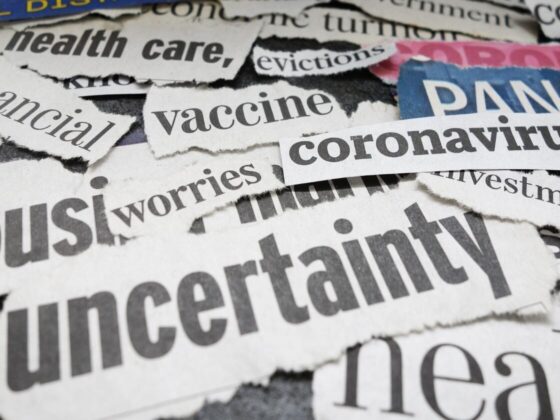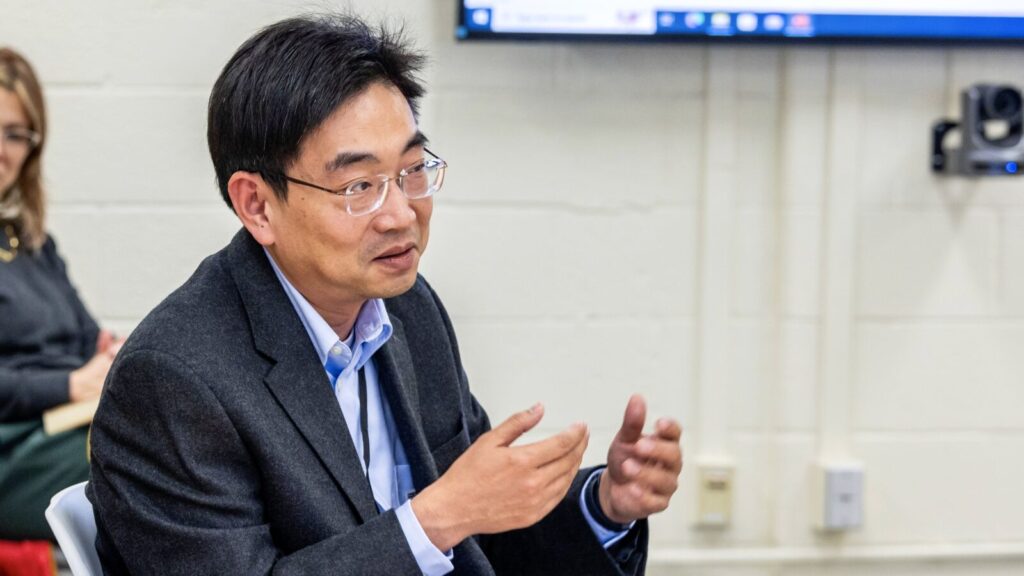News Details
New study explores how economic stressors and vaccination shaped mental health during the pandemic

Authored by: Carson Easterly
Photography by: zimmytws - Adobe Stock
Faculty & Research
04/07/25
Findings emphasize the need to integrate mental health support into disaster risk management
A new paper co-authored by Chenyi Ma, PhD, research assistant professor at the School of Social Policy & Practice (SP2), explores the impact of job loss, food insecurity, and COVID-19 vaccination on anxiety levels among different demographic groups in the United States during the pandemic.
Published in The Journals of Gerontology: Series B, the paper uniquely uses a disaster risk management framework to examine mental health disparities, offering key insights for future disaster preparedness and response.
Dr. Ma and coauthors Tony E. Smith, PhD, professor emeritus at the School of Engineering and Applied Science, and Dennis P. Culhane, PhD, professor at SP2, analyzed national survey data to explore the prevalence of generalized anxiety disorder (GAD) in relation to demographic characteristics, economic hardships, and COVID-19 vaccination status.
The findings revealed that Black and Hispanic Americans experienced higher rates of GAD compared to non-Hispanic White Americans. The researchers attribute these disparities to disproportionate experiences of job loss and food insecurity. After controlling for these economic factors, the researchers found that Hispanic and Black Americans were less likely to suffer from GAD than White Americans, further showing that disparities in mental health were largely driven by economic hardship.
The authors also found that older adults were less vulnerable to job loss and food insecurity, and therefore were significantly less likely to experience GAD than middle aged and younger adults. Among older adults, the odds of experiencing anxiety were reduced for those who were partially vaccinated and even more so for those who were fully vaccinated. The authors suggest this reduction in anxiety may be linked to decreased fear of severe illness and death following vaccination.
“While vaccines were primarily framed as a tool to prevent severe illness and death, our findings suggest that they also played an important role in reducing anxiety, especially among older adults,” says Dr. Ma. “This underscores the power of public health measures in shaping not just physical health but also mental resilience.”

The study highlights the importance of incorporating mental health into emergency response planning. The authors recommend that policies related to unemployment assistance, food access, and timely vaccine distribution should be high priorities in future public health emergency responses.
Adds Dr. Ma, “Too often, emergency preparedness focuses solely on physical protection and economic recovery, but mental health support is equally critical. My hope is that this research inspires future policies that integrate psychological well-being into public health crisis management, ensuring that the most vulnerable populations receive both the protection and reassurance they need during uncertain times.”
Dr. Chenyi Ma’s research focuses on advancing interdisciplinary knowledge of disaster risk reduction and sustainable development. His research agenda centers on four key areas: social determinants of health and behavioral outcomes in disaster contexts; social vulnerability within the framework of disaster preparedness; the role of risk analysis in shaping effective policy for disaster mitigation; and the psychosocial factors driving philanthropic behavior in response to disasters.
People
-

Dennis P. Culhane, PhD
Professor
Contact
office: 215.746.3245
fax: 215.573.2099
Email